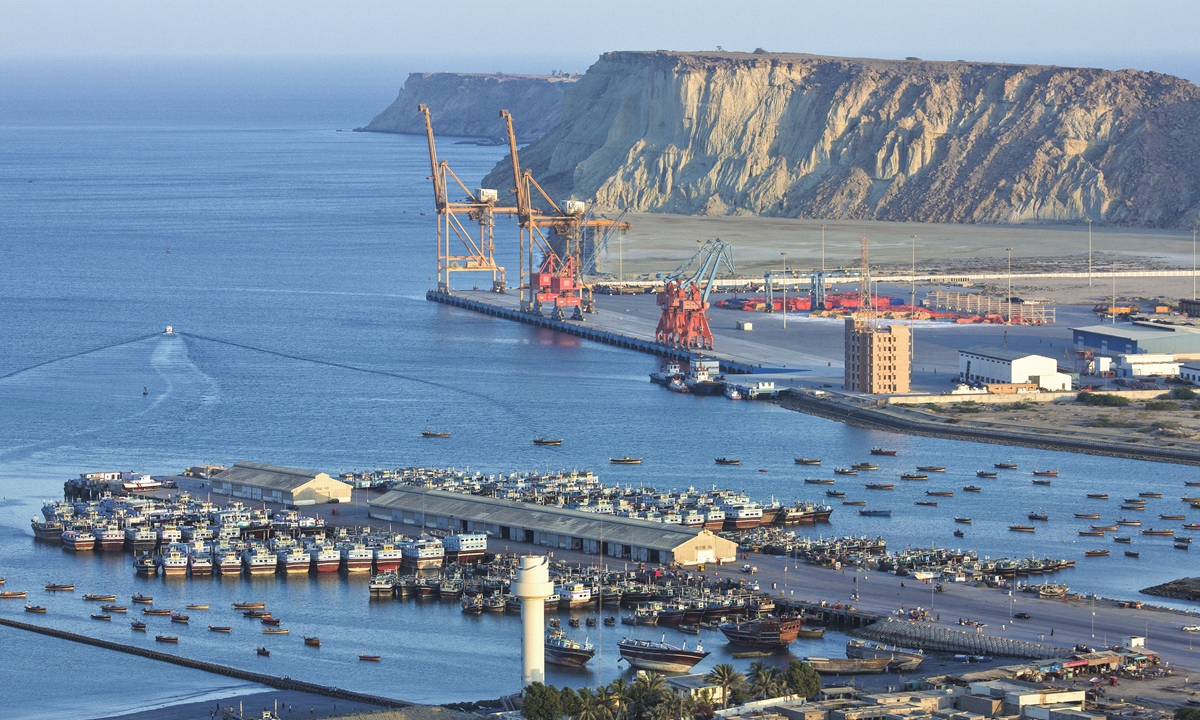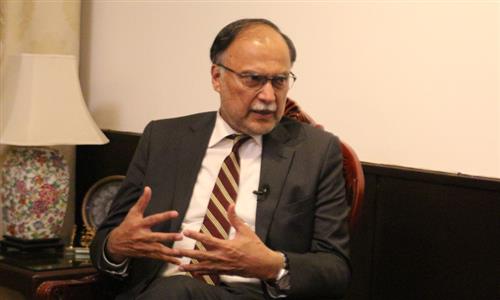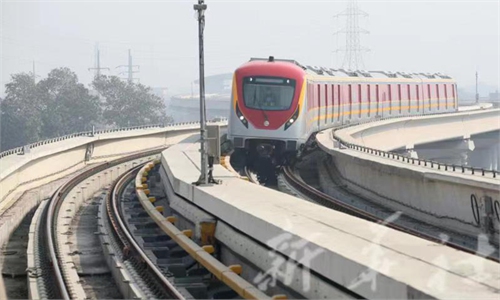
A view of the Gwadar port of Pakistan Photo: VCG
At the invitation of the government of Pakistan, Vice Premier of China's State Council, He Lifeng, as the special representative of President Xi Jinping, attended the Decade of China-Pakistan Economic Corridor (CPEC) celebration, in Islamabad, the capital of Pakistan, from Sunday to Tuesday. Western media outlets didn't miss the opportunity to slander China-Pakistan cooperation under the CPEC. According to a recent report by Voice of America (VOA), some critics blamed CPEC investments for contributing to Pakistan's economic troubles and growing debts while expressing concern about the so-called security threats.
It is worth noting that media outlets like VOA often report on the CPEC with a biased perspective influenced by their own ideologies. While it cannot be denied that Pakistan's economy has faced many challenges in recent years, the root causes lie in longstanding internal structural issues, such as an imbalanced economic structure and insufficient self-sustaining capacity. In a sense, these problems might have been even more severe without the CPEC.
Pakistan's economic predicament is also closely related to the global economic environment. The irresponsible monetary policy of the US, including the reckless raising of interest rates, has led to significant capital outflow from Pakistan. Moreover, the escalation of energy and food prices worldwide due to the Russia-Ukraine conflict has also negatively affected Pakistan's economy.
There are also security risks which cannot be ignored. However, Pakistan's security challenges did not arise overnight; they are closely linked to the tumultuous situation in northern Afghanistan. The 20-year-long so-called "war on terror" launched by the US in Afghanistan has led to the spillover of terrorist forces. Coupled with Pakistan's unique religious and ethnic social structure, as well as the challenges in managing across ethnic and regional boundaries, terrorist elements roam freely along the border of both countries, further exacerbating Pakistan's security situation.
Both China and Pakistan attach great importance to addressing security challenges and are deeply concerned about their impact on the CPEC and Pakistan's social stability. To safeguard the CPEC, Pakistan's law enforcement agencies and government have implemented a series of effective measures to counter security risks.
Over the past decade, as an important pioneering project of the Belt and Road Initiative (BRI), the CPEC has had a significant positive impact on Pakistan. It has notably improved infrastructure, particularly addressing the longstanding issues in Pakistan's power and energy systems. Additionally, the CPEC has generated employment opportunities for residents along its route, laying a solid foundation for future high-quality cooperation between China and Pakistan. The CPEC's indispensable role in revitalizing Pakistan's economy is widely recognized not only by the Pakistani government and its people but also by international neutral observer organizations.
However, as the BRI marks its 10th anniversary, certain Western media outlets have been tirelessly attempting to smear the CPEC with a biased perspective. This is because, with the success of the CPEC and the BRI, they are expected to generate increasingly significant positive economic effects globally, particularly in developing countries. This has led some Western countries to feel increasingly annoyed. In order to curb China's growing influence, they have resorted to concocting various narratives, such as the debt trap theory, China's so-called expansionism and neo-colonialism, all aimed at serving their own hidden agendas.
Regardless of how Western media may attempt to discredit it, the China-proposed BRI will continue to bring more economic cooperation and new development opportunities for Pakistan. Focusing on infrastructure development, the first phase of the CPEC has achieved fruitful results. As the project progresses into the second phase of high-quality development, China will continue to strengthen high-quality cooperation with countries along the route, helping them achieve greater accomplishments than in the previous decade by sharing China's successful experiences.
While the CPEC brings numerous opportunities, it also faces certain challenges. These challenges include ensuring smooth project implementation, stable funding supply, and addressing security issues in some regions. Nevertheless, these challenges can be overcome through determined efforts.
Despite the differences in political systems and national sizes, China and Pakistan have maintained a strong and close cooperation. This friendship is not only recognized at the official level but deeply cherished by the peoples, as it is often said, "higher than the mountains, deeper than the oceans, sweeter than honey, and stronger than steel." The CPEC, as a new benchmark of bilateral cooperation, will serve as a powerful cohesive force connecting the people of China and Pakistan, further strengthening their friendship and solidifying bilateral relations. This spirit of cooperation and friendship will bring forth more opportunities for shared prosperity and development for both nations.
The author is the director of the research department at the National Strategy Institute at Tsinghua University. opinion@globaltimes.com.cn


